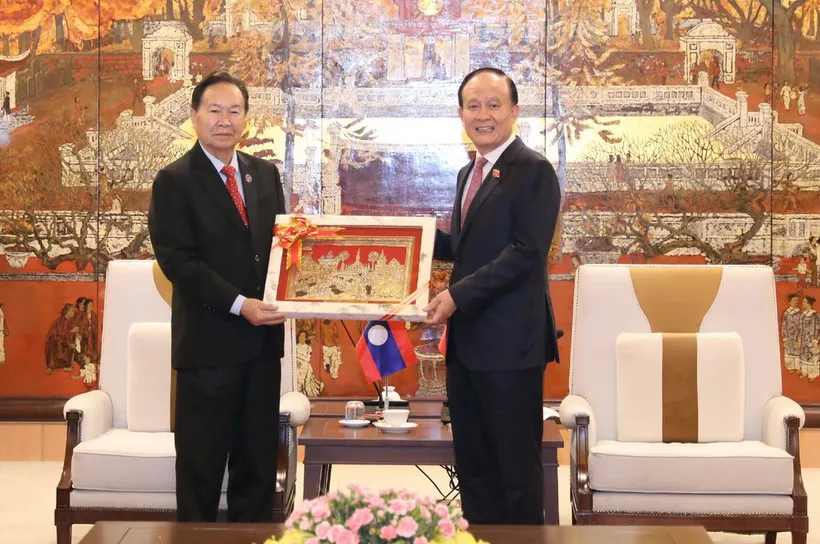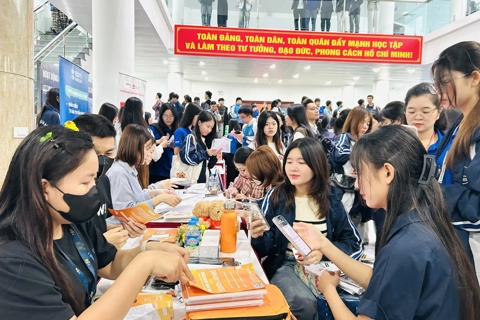Hanoi prioritizes cooperation with Lao localities
Chairman of the Lao National Assembly Chaleun Yiapaoher visited the Hanoi People's Council and discussed cooperation between Hanoi and Lao localities.
In the coming period, the Hanoi People's Council and the capital's government will give priority to promoting friendly relations and cooperation with localities in Laos.
That's the statement of Nguyen Ngoc Tuan, Deputy Chairman of the Hanoi People's Council, at a reception for Chaleun Yiapaoher, Vice-Chairman of the Lao National Assembly, on January 5.
Vice-Chairman Chaleun Yiapaoher expressed his pleasure and gratitude for the warm welcome and said that the visit was aimed at exchanging, sharing, and gaining experience in legislative research, law amendment, and compiling materials on the 50-year history of the Lao National Assembly. This is also an opportunity to learn the experience of the organization and operation of the People's Council of Vietnam at all levels, he said.
| Chaleun Yiapaoher (L), Deputy Speaker of the Lao National Assembly, presents a souvenir to Nguyen Ngoc Tuan, Chairman of the Hanoi People's Council. Photo: VNA |
According to Vice Chairman Chaleun Yiapaoher, the knowledge and experience shared by the Hanoi side are valuable for the Lao people's representative bodies.
For his part, Nguyen Ngoc Tuan, Chairman of the Hanoi People's Council, said that cooperation between Hanoi and Vientiane, as well as Hanoi and other Lao localities, has recently been strengthened and comprehensively developed in all channels, with many effective projects.
"We would like to work with the Party and State of Laos, the capital Vientiane and localities in Laos to exchange information and experience and to provide all kinds of assistance through meaningful activities in the future," said Tuan.
Accordingly, the cooperation will bring practical benefits to both sides and contribute to consolidating and developing the special friendly cooperation between Vietnam and Laos, Tuan said.
Commenting on the structure and functioning of People's Councils at all levels, Tuan said that according to the Law on the Organization of Local Government, the Hanoi People's Council functions as a local State organ, representing the will, aspirations, and rights of the people to be the masters.
Historically, there have been 16 legislatures of the Hanoi People's Council, each associated with a historical stage of the capital's development. The organization and activities of the Hanoi People's Council are constantly being consolidated and improved.
The Hanoi People's Council term 2021-2026, has 95 delegates divided into 30 delegate groups in 30 districts and towns. The Council consisted of four committees, including Economy-Budget, Culture-Society, Legislation, and Urban Affairs.
In recent years, the Council has always fulfilled its responsibilities under the motto "Innovation - Diligence - Methodical - Efficiency". It has also been highly praised by the National Assembly as a typical reference for People's Councils in provinces and cities across the country.












